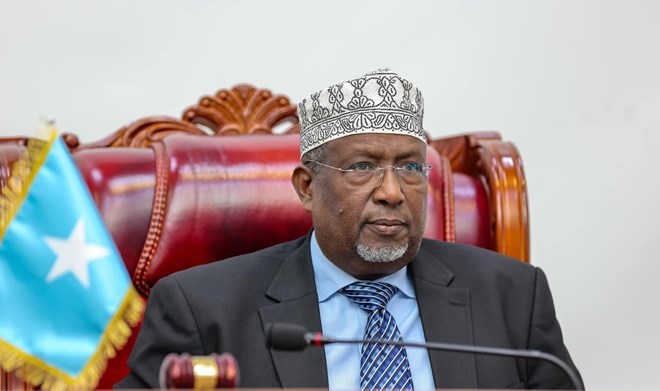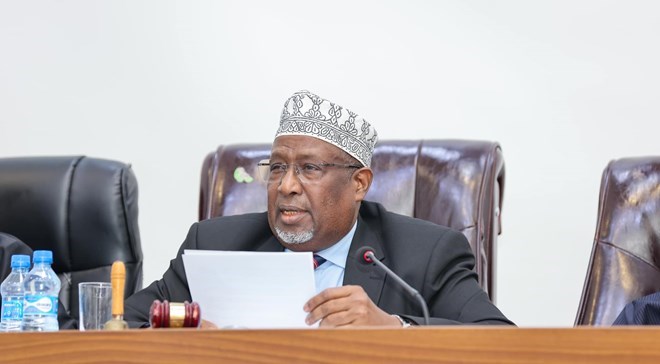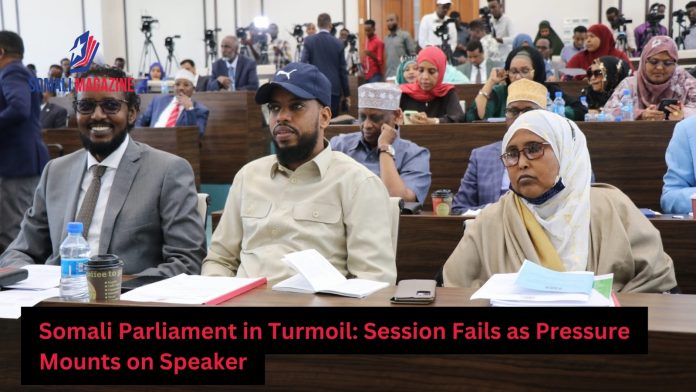Facebook Twitter (X) Instagram Somali Magazine - People's Magazine
Somalia’s Lower House Parliament failed to convene on May 8, 2025, after falling short of the required quorum, intensifying political tensions as lawmakers push for a no-confidence motion against Speaker Sheikh Aden Mohamed Nur (Madoobe). The session, which was expected to address key legislative matters, was abruptly adjourned when only 120 members attended—19 short of the 139 required for proceedings to continue.
Speaker Madoobe expressed frustration over the repeated absences, calling on lawmakers to fulfill their constitutional responsibilities. “It is unfortunate that the work of the House of the People is often delayed due to the absence of irresponsible members,” he stated, urging MPs to attend sessions regularly to prevent further disruptions. He praised those who consistently participate, noting that some lawmakers “deserve certificates of honor” for their commitment, while others neglect their duties despite residing in Mogadishu.

The session collapse comes amid growing political friction, with lawmakers threatening to table a motion of no confidence against Madoobe. Critics accuse him of failing to effectively lead the House and mishandling internal disputes, leading to repeated disruptions. Last week, tensions erupted into a physical altercation between rival MPs inside the parliamentary chamber, further highlighting the deep divisions within Somalia’s legislature.
The dysfunction within Parliament has raised concerns about transparency, power imbalances, and deteriorating confidence in legislative leadership. Observers warn that persistent delays in parliamentary proceedings risk stalling key reforms and government functions, including security policies and economic development initiatives.

Madoobe’s critics argue that his leadership has contributed to the instability, with some MPs accusing him of favoring certain factions and failing to mediate disputes effectively. The Speaker, however, maintains that absenteeism is the primary issue, calling for lawmakers to take collective responsibility in ensuring the institution functions properly.
The political turmoil surrounding Somalia’s Parliament reflects broader governance challenges as the country prepares for upcoming elections. The inability to hold consistent legislative sessions threatens to derail critical policy discussions and weaken institutional credibility.
As pressure mounts on Madoobe, the focus remains on whether lawmakers will proceed with the no-confidence motion or seek alternative solutions to restore parliamentary stability. The coming weeks will be crucial in determining the future of Somalia’s legislative leadership and its ability to navigate ongoing political challenges.

